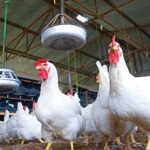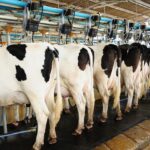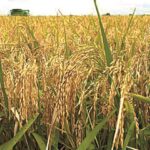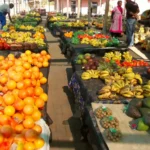- BACKGROUND
The Federal Government of Nigeria has received a Facility from the African Development Bank (AfDB), International Fund for Agricultural Development (IFAD) and the Islamic Development Bank (IsDB) to finance the cost of the Special Agro-Industrial Processing Zones Program (SAPZ), and intends to apply part of the proceeds towards carrying out various consultancy services. The SAPZ Program is being implemented in the seven (7) States and the Federal Capital Territory (FCT). The States are Cross River, Imo, Kaduna, Kano, Kwara, Ogun and Oyo.
The overall development objective of the SAPZ programme is twofold: (1) Support the development of SAPZ in high food production areas to supply the domestic food market and create exportable surpluses; and (2) Capacitate smallholder farmers, small agro-processors and traders, and community-based service providers, including women and youth; to take advantage of the market demand created by the SAPZ to sustainably enhance their income, household food security and resilience to climate change.
The programme has four components namely:
➢Component 1: Infrastructure Development and Management for Agro-Industrial Hubs (AIHs). Under this AfDB-led component, the programme will support the FGN in developing and setting up SAPZs in high potential states.
➢Component 2: Agricultural Productivity, Production, Market Linkages and Value Addition in SAPZ Catchment Areas. Under this component, SAPZ’s objective is threefold: (i) support smallholder farmers and small operators to increase their productivity/production and capacity to add value to raw materials on a profitable and environmentally sustainable basis; and (ii) link them to the additional market outlets offered by the Agro-Industrial Hubs (AIHs), off-takers supplying the local and national market who operate in the target area, and small processors/traders supplying the local markets, including primary processors operating in the Agricultural Transformation Centres (ATCs); iii) enhance the resilience and adaptive capacity of smallholder farmers to climate change..
➢Component 3: Policy and Institutional Development Support. The objective of component 3 is to support the development of enabling policies, legislation, and regulation for SAPZs in Nigeria to create a conducive business environment for private sector investment and to address inefficiencies and market failures in agricultural value chains.
➢Component 4: Programme Coordination and Management. This component will ensure that the programme is efficiently and effectively managed to achieve expected results.
The SAPZ program is designed to support the development of agro-industrial hubs, with a focus on enhancing the productivity of smallholder farmers and agro-processors through market linkages and value addition. The program aims to boost domestic food production and create exportable surpluses. It also aims to enhance the capacity of smallholder farmers, processors, and traders, with a specific focus on women, youth, and marginalized groups and facilitate the growth of agro-processing industries through improved market access and integration into global value chains.
To ensure the program’s success and sustainability, it is critical to conduct a thorough market analysis that will inform the development of value chains, market access, and strategies for linking smallholder farmers and agro-processors to profitable markets. This Terms of Reference (ToR) outlines the consultancy services required to conduct a detailed market analysis in the target 8 LGAs areas of Kano State. The analysis will assess current market conditions, demand and supply dynamics, key market players, and identify opportunities for strengthening linkages between producers, processors, and consumers in the agro-industrial value chains aimed at enhancing agricultural productivity, agro-processing, and market linkages in Kano State.
- Objective of the Consultancy
The objective of this consultancy is to conduct a comprehensive market analysis in the targeted SAPZ regions to:
i. Identify key agricultural products, market demand, and supply trends.
ii. Analyze existing value chains, including the role of smallholder farmers, processors, traders, and buyers.
iii. Identify market access barriers and opportunities for value addition.
iv. Assess the competitive landscape, key players, and potential for new market entry.
v. Provide actionable recommendations to enhance market linkages and improve the commercial viability of the SAPZ program.
Kindly download the attached documents for more details please.






Recent Comments